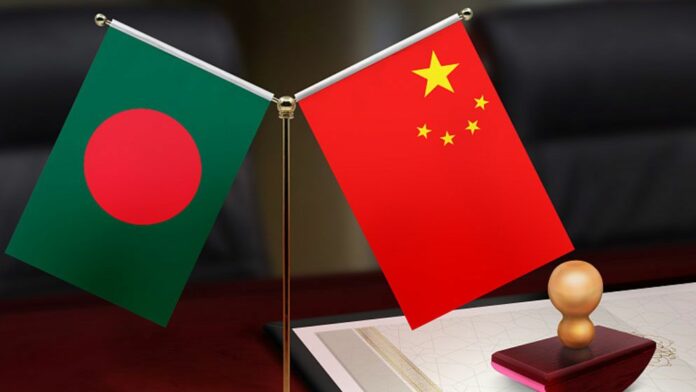China wants to raise interest rates by lending in its own currency. Objecting to this, Bangladesh has proposed a lower interest rate than the current interest rate. An official of the Economic Relations Department (ERD) considers China's interest rate hike proposal unacceptable.
As the matter has not yet been settled, the matter of obtaining a loan in yuan is pending. However, the Economic Relations Department (ERD) is said to be contacting China for a meeting soon.
According to sources, China offered to take loans in the local currency 'yuan' instead of US dollars. In this case, the government took the initiative to make the transaction successful. Earlier, the Economic Relations Department (ERD) had written to the Finance Department and Bangladesh Bank to give the necessary opinion in this regard.
In response to this letter, the two organizations agreed. But the problem is with the interest rate. China announced a 3 percent interest rate for loans in its own currency. Currently, China has a maximum interest rate of 2 percent on all types of loans. The Finance Department objected to the 1 percent increase there.
At the end of the recently fallen Awami League government, Bangladesh requested a 1 percent interest rate for taking new loans. About 3/4 months have passed since the letter was sent, but the Chinese authorities have not yet responded. However, ERD has continued the negotiations at various stages.
When asked about this, former senior secretary of ERD Kazi Shafiqul Azam told Jugantar on Thursday that it is better if China can take loans in its own currency. This will reduce the pressure on the dollar. However, in this case, the proposal to increase the interest rate suddenly is not acceptable. It is possible to bring the interest rate down to a reasonable level by negotiation. That is why the negotiation system is in place. But in organizations like the IMF or the World Bank, where a standard interest rate is fixed, nothing can be done. But with China or other bilateral and multilateral development partners, it is possible to lower interest rates through negotiation.
A source in charge of ERD told Jugantar that there is no scope to reduce the interest rate or increase the grace period and repayment period on the current ongoing loans. Once an agreement is made, there is no way to break the agreement. In the coming days, new loans, especially loans in Chinese currency, are complicated by interest rates.
Those concerned say that the digital connectivity project in government offices is planned to take 3 thousand 378 crores of China and Chinese currency as Preferential Buyers Credit (PBC). Bangladesh generally repays its debt in US dollars. But since the interest rate on China's debt is low, buying yuan from the reserve will save the country's money.
It will also stop the depletion of reserves. While importing products under this loan, the comparative rates of other countries should be checked. If the price of goods purchased from China is lower or equal to that of other countries, it will be good for us. Chinese loans should be used in such cases, through which our export earnings increase. If this debt is spent on infrastructure, then the output from there will be less, which will put pressure on debt repayment.
According to sources, 65 percent of the construction materials have to be bought from China with preferential buyers credit under China's loan regulations. And 40 percent of the equipment can be bought from outside China. However, even if you buy from other countries, you will have to pay the import duty in Yuan. As a result, Bangladesh Bank has to buy yuan with dollars. This includes currency conversion risk and may increase the actual cost of the project. The country's export income from China is 1 billion dollars. Compared to that, the import cost is about 16 billion dollars. And this trade is done in dollars.
According to sources, the country has a debt of 1.7 billion yuan (about 2.5 billion dollars) so far. Of this, 320 million yuan has been repaid, including principal and interest. There are currently 10 Chinese-funded projects in the pipeline. Bangladesh has agreed to take a proposed loan of 9.49 billion yuan (about 1.2 billion dollars) in favor of 6 projects. If these loans are taken, the total debt of Bangladesh in Chinese currency will stand at 4,584 billion yuan.
According to ERD sources, since 2016, the yuan has been included in the Special Drawing Rights (SDR) basket of the International Monetary Fund (IMF). Bangladesh has repaid 3.66 billion yuan from 2018-2023 against the yuan-denominated loans taken from China earlier. As a result, experts believe that there is no problem in repaying loans taken in yuan in the future.










